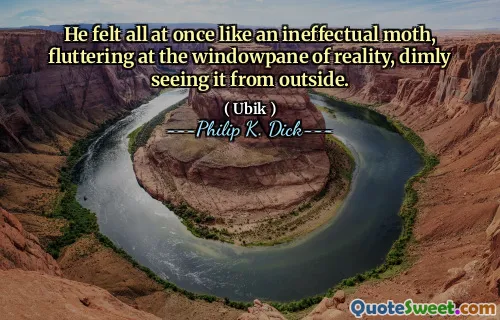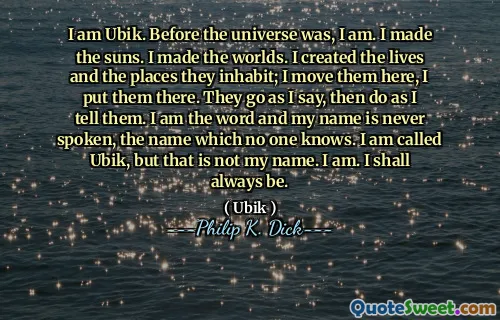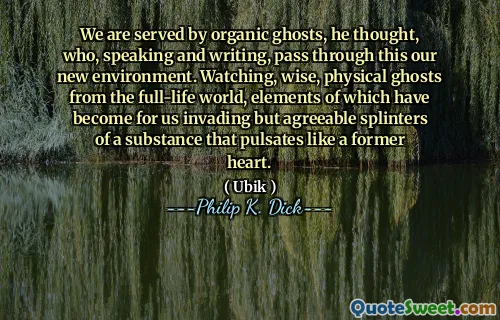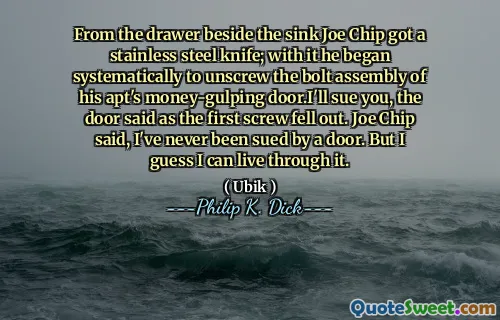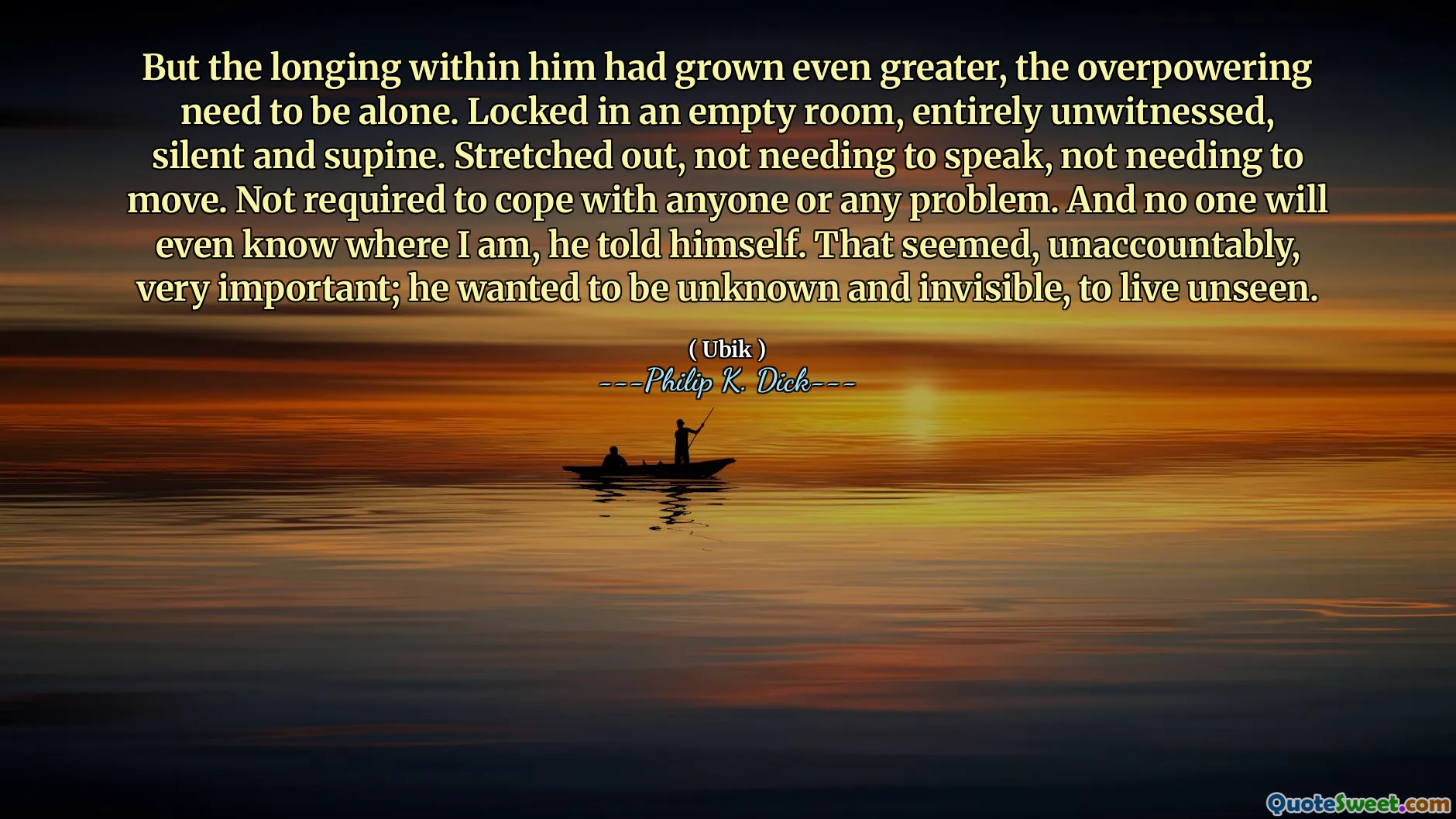
But the longing within him had grown even greater, the overpowering need to be alone. Locked in an empty room, entirely unwitnessed, silent and supine. Stretched out, not needing to speak, not needing to move. Not required to cope with anyone or any problem. And no one will even know where I am, he told himself. That seemed, unaccountably, very important; he wanted to be unknown and invisible, to live unseen.
In Philip K. Dick's "Ubik," the protagonist experiences an overwhelming desire for solitude, amplifying his longing to escape from the demands of the outside world. He yearns to be in a completely empty space, free from the need to interact or confront any issues. This intense craving for isolation is profoundly important to him, as he envisions a state where he can exist without any social obligations or expectations. The wish to be unnoticed underlines his need for personal freedom.
Moreover, this desire for invisibility reveals deeper themes of alienation and self-preservation. The character's contemplation of being locked away in silence reflects a struggle with identity and the pressures of social interaction. He fantasizes about a life lived away from prying eyes, where he can genuinely disconnect from societal demands. This longing for anonymity not only highlights his inner turmoil but also invites readers to consider the complexities of human existence and the intrinsic need for moments of escape.
